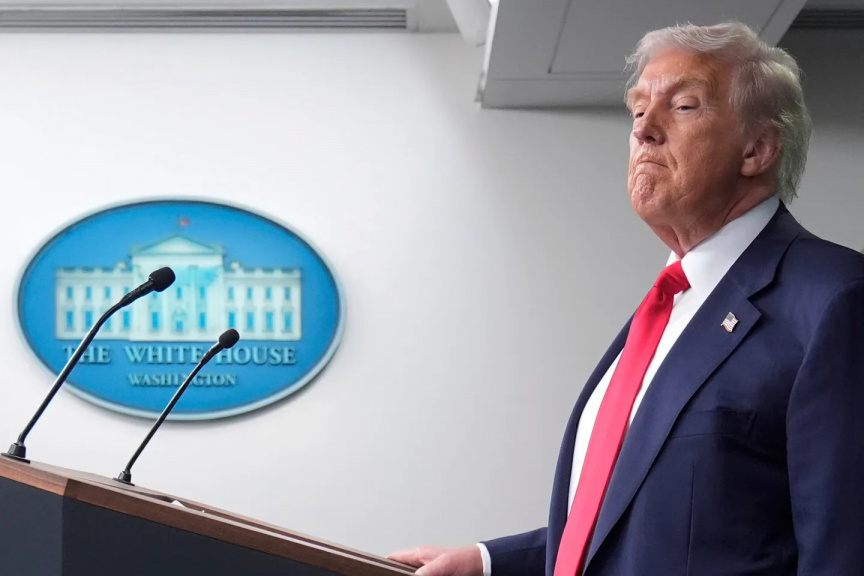
US President Donald Trump. (Photo/AP)
US President Donald Trump announced Monday that he signed an executive order that will extend tariff suspension on China for another 90 days.
"All other elements of the Agreement will remain the same. Thank you for your attention to this matter!" Trump said on Truth Social on Monday.
According to the order, the US will maintain the suspension of heightened tariffs on Chinese imports until November 10.
A 10 percent reciprocal tariff remains in effect during the suspension.
The move came after earlier reports by the Wall Street Journal and CNBC said that Trump signed the order, citing administration officials.
The Chinese Commerce Ministry also said it suspended tariffs on US goods for 90 days.
China, however, will maintain its tariffs on US goods at 10 percent, the statement said, and take action to address non-tariff barriers facing American products.
Shaky truce
Even as both countries reached a pact to cool tensions after high-level talks in Geneva in May, the de-escalation has been shaky.
In June, key economic officials convened in London as disagreements emerged, and US officials accused their counterparts of violating the pact. Policymakers met again in Stockholm last month.
US trade envoy Jamieson Greer said last month that Trump will have the "final call" on any such extension.
Trump said in a social media post late on Sunday that he hoped China would "quickly quadruple its soybean orders," adding that this would be a way to balance trade with the United States.
For now, the extension of a truce means that US tariffs on Chinese goods this year stand at 30 percent.
Under their de-escalation, Beijing's corresponding levy on US products stood at 10 percent.
Since returning to the presidency in January, Trump has slapped a 10-percent "reciprocal" tariff on almost all trading partners, aimed at addressing trade practices Washington deemed unfair.
This surged to varying steeper levels last Thursday for dozens of economies.
Major partners like the European Union, Japan and South Korea now see a 15-percent US duty on many products, while the level went as high as 41 percent for Syria.
The "reciprocal" tariffs exclude sectors that have been separately targeted, such as steel and aluminium, and those that are being investigated, like pharmaceuticals and semiconductors.
They are also expected to exclude gold, although a clarification by US customs authorities made public last week caused concern that certain gold bars might still be targeted.
Trump on Monday said that gold imports will not face additional tariffs, without providing further details.
The US president has taken separate aim at individual countries such as Brazil over the trial of former president Jair Bolsonaro, who is accused of planning a coup, and India over its purchase of Russian oil.
Canada and Mexico come under a different tariff regime.
___
Source: TRT